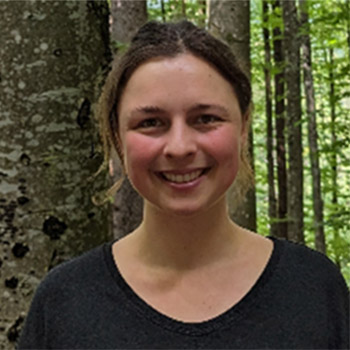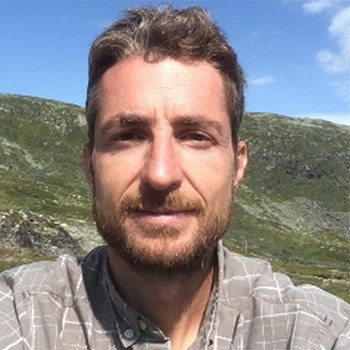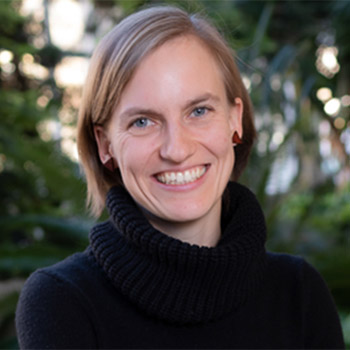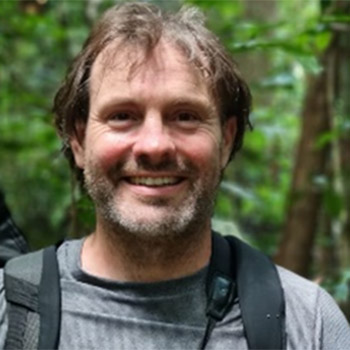Keynotes

Anne Chao
Institute of Statistics, University National Tsing Hua University, Taiwan
Anne Chao is a Professor in Statistics. She is currently 60% statistician, 30% mathematician, and 10% ecologist. For over 40 years, she has been fascinated by the mathematical and statistical challenges that arise in ecology and environmental sciences. Her expertise lies in ecological statistics, statistical methodologies, and statistical sampling/analysis of survey data. Together with her colleagues and students, she has developed several biodiversity measures/estimators, including Chao1, Chao2, ACE, and ICE, which are used to assess species richness. She has also contributed novel standardization methods and software (including iNEXT, iNEXT.3D and iNEXT.beta3D) for inferring and comparing biodiversity across scales.
Keynote:
The flavours of iNEXT - quantification of biodiversity in the footprints of Alan Turing
Most ecological studies rely on sampling data. However, comparisons based solely on observed diversity can be misleading, as such values are typically sensitive to sampling effort and sample completeness. To enable meaningful comparisons across assemblages or spatial scales, sample (or data) standardization is essential. Within the Hill numbers framework—which encompasses species richness, Shannon diversity, and Simpson diversity—the iNEXT (interpolation and extrapolation) method offers a statistical approach for standardizing either sample size or sample completeness across datasets, for both abundance and incidence data. An objective measure of sample completeness is sample coverage, defined as the proportion of individuals in the assemblage (including those from undetected species) that belong to the species detected in the sample. The concept of sample coverage was originally developed by Alan Turing during his cryptographic work during WWII. Sample coverage can be accurately estimated from sampling data. The integration of sample-size- and coverage-based rarefaction and extrapolation represents a unified standardization for quantifying and comparing species diversity across multiple assemblages. The sample-size-based rarefaction and extrapolation curve can be used to assess whether data are sufficient for accurate asymptotic estimation. For non-asymptotic estimation, rarefaction and extrapolation standardized by sample coverage are better able to judge the magnitude of the differences in diversity among assemblages compared to size-based approaches. The iNEXT method has been extended to various contexts, including iNEXT.3D (for taxonomic, phylogenetic, and functional diversity), iNEXT.beta3D (for beta diversity), iNEXT.link (for network data), and iNEXT.meta (for synthetic analysis). Data from the Beta-For project, Enhancing the structural diversity between patches for improving multidiversity and multifunctionality in managed forests, are used for illustration.

Pia Bradler
Leuphana University Lüneburg and the Technical University of Dresden
Pia Bradler is a doctoral researcher. She has a background in global change ecology and has worked on investigating the impacts of global change, particularly warming and land use change, on plant communities and functional diversity. Her current work focuses on how an increase in structural heterogeneity in temperate managed forests affects understory plant diversity and functioning across spatial scales using iNEXT in different analyses.
Keynote:
The flavours of iNEXT - quantification of biodiversity in the footprints of Alan Turing
Most ecological studies rely on sampling data. However, comparisons based solely on observed diversity can be misleading, as such values are typically sensitive to sampling effort and sample completeness. To enable meaningful comparisons across assemblages or spatial scales, sample (or data) standardization is essential. Within the Hill numbers framework—which encompasses species richness, Shannon diversity, and Simpson diversity—the iNEXT (interpolation and extrapolation) method offers a statistical approach for standardizing either sample size or sample completeness across datasets, for both abundance and incidence data. An objective measure of sample completeness is sample coverage, defined as the proportion of individuals in the assemblage (including those from undetected species) that belong to the species detected in the sample. The concept of sample coverage was originally developed by Alan Turing during his cryptographic work during WWII. Sample coverage can be accurately estimated from sampling data. The integration of sample-size- and coverage-based rarefaction and extrapolation represents a unified standardization for quantifying and comparing species diversity across multiple assemblages. The sample-size-based rarefaction and extrapolation curve can be used to assess whether data are sufficient for accurate asymptotic estimation. For non-asymptotic estimation, rarefaction and extrapolation standardized by sample coverage are better able to judge the magnitude of the differences in diversity among assemblages compared to size-based approaches. The iNEXT method has been extended to various contexts, including iNEXT.3D (for taxonomic, phylogenetic, and functional diversity), iNEXT.beta3D (for beta diversity), iNEXT.link (for network data), and iNEXT.meta (for synthetic analysis). Data from the Beta-For project, Enhancing the structural diversity between patches for improving multidiversity and multifunctionality in managed forests, are used for illustration.

Lorenzo Marini
University of Padova, DAFNAE
Lorenzo Marini is a professor of general and applied entomology at the University of Padova. His research focuses on understanding how major anthropogenic pressures impact plant and insect diversity, as well as associated ecosystem services, with the ultimate goal of developing management solutions to mitigate negative effects on agricultural and natural ecosystems. In agroecology, he primarily works on plant protection and pollination, contributing to the design of sustainable cropping systems. His research also extends to global change, species range shifts, and biological invasions. He employs diverse methodological approaches, including manipulative experiments, observational studies, macroecological analyses, and syntheses. Following various international research experiences, he established his research group at the University of Padova in 2011, creating multiple Ph.D. and postdoctoral positions funded by European, national, and regional research grants.
Keynote:
Agroecology in a changing world: challenges and novel frontiers
In the next decades, the growing human population will pose significant challenges to meet global food demand while protecting biodiversity across agricultural landscapes. To increase the resilience of cropping systems, different disciplines including biotechnology, agronomy, and agro-ecology are trying to provide farmers with a diverse portfolio of solutions. In this context, agro-ecology has proposed local and landscape diversification as a general strategy to both sustain yields and protect biodiversity. However, after decades of ecological research intensive agriculture is still one of the major drivers of biodiversity loss worldwide. We still have incomplete knowledge on single interventions’ effectiveness under different environmental contexts and on their potential costs and benefits for farmers and the wider society. This large uncertainty is currently hindering a widespread adoption of agro-ecological strategies. To try to fill these knowledge gaps, I will outline current challenges and novel frontiers in agro-ecological research. From a more theoretical perspective, bridging network theory with landscape ecology can help inform landscape management by improving our understanding of the complex relationships between service-delivering organisms and their environments. From a more applied perspective, expanding the focus from single ecological services to landscape multi-functionality, for instance by incorporating co-benefits such as non-instrumental values, can help overcome current barriers to the adoption of agro-ecological strategies into conventional farming systems. Integrating different disciplines could foster synergies between food production and biodiversity conservation goals.

Zuzana Buřivalová
University of Wisconsin-Madison, The Nelson Institute for Environmental Studies and the Department of Forest and Wildlife Ecology, The Sound Forest Lab
Zuzana Buřivalová is Assistant Professor and the Principal Investigator of the Sound Forest Lab. She is a tropical forest ecologist and conservation scientist, based at the University of Wisconsin-Madison, where she is affiliated with the department of Forest & Wildlife Ecology, The Nelson Institute for Environmental Studies, and the Center for Sustainability and the Global Environment (SAGE). Before joining UW-Madison, she was a post-doctoral research fellow at Princeton University and The Nature Conservancy, and received her PhD at the ETH Zürich and BA at Oxford.
Zuzana researches ways to protect biodiversity in tropical forests, both forests that are used by people, for example for logging, and forests set aside for conservation, from national parks to small community protected areas. She tries to answer tricky questions in tropical forest ecology using new technologies, such as through recording soundscapes, where traditional field methods aren’t enough. She also collaborates with the environmental news platform Mongabay on understanding, which conservation strategies succeed and fail in tropical forests. Zuzana feels privileged to have worked in the tropical forests of Madagascar, Papua New Guinea, Borneo, Gabon, Peru, and Ecuador.
Zuzana is the 2021 winner of the nature award for driving global impact. In 2023, she received the Bassam Z. Shakhashiri Public Science Engagement Award, and the WINGS Women of Discovery Award.
Keynote:
Documenting tropical forest biodiversity loss and recovery using sounds
Forests are at the forefront of nature-based climate solutions, and this has stimulated a global investment into their protection. Yet, focusing on carbon, many nature-based climate solutions do not automatically protect biodiversity. I will discuss the need to include biodiversity conservation as a major goal for tropical forest nature-based climate solutions. I will demonstrate how we use new technologies, particularly bioacoustics (recording and analyzing sounds that animals and humans make), to document the losses and gains in biodiversity. Using new advances in machine learning to detect animal and gunshot sounds, I will show not only the patterns but also the processes that underly biodiversity changes in the world’s most diverse tropical forests. In this talk, I will draw on examples from the Sound Forest Lab’s work across tropical forests.

Jos Barlow
Examining the changing threats and solutions for Amazonia’s forests
Jos Barlow is a professor in conservation science at Lancaster Environment Centre (UK) and a professor of ecology at the Federal University of Pará (Brazil). His work addresses how human activities impact tropical forest biodiversity and the ecosystem services and functions that biodiversity delivers, with a focus on the Brazilian Amazon where he has been working since 1998. He is a co-founder of the Sustainable Amazon Network (Rede Amazônia Sustentável), which brings together scientists, conservation practitioners and local stakeholders to further our understanding of the environmental and socio-economic trade-offs in the world's largest remaining expanse of tropical forest. He is a Trustee of WWF-UK, Lead author & member of the Scientific Steering Committee of the UN’s Science Panel for the Amazon, and Editor-in-Chief of Journal of Applied Ecology.
Keynote:
From Rio92 to COP30: Assessing Amazonia’s changing solution space
The Rio’92 Earth Summit underpinned the development of organised international action via the UN conventions on Climate Change (UNFCCC) and Biodiversity (CBD). More than thirty years on, South America is in the spotlight again; COP16 of the CBD was held in Colombia and COP30 of the UNFCCC will be held in the Amazon for the first time. This has brought renewed focus on the Amazon and surrounding ecosystems at a crucial time when recent events and research highlight the growing risk of critical thresholds being crossed that could undermine the sustainability and functioning of the whole basin. Here, I outline those emerging risks by: (i) showing how disturbances within the remaining forests are adding to the negative impacts of deforestation, driving changes in traits and winner-loser species replacement; (ii) examining the role of climate extremes, which are increasing at a faster rate than mean annual changes in temperature, and (iii) exploring what these mean for critical thresholds and the potential for abrupt system-level tipping points. Finally, I examine how these changes – and predictions of future change – are altering and diminishing the solution space for the Amazon basin and other tropical forest regions, and show how achieving net-positive ecological trajectories requires going beyond avoiding deforestation or restoration, and must include actions that prevent further degradation.

Jean-Philippe Lessard
Concordia University in Montreal, Canada
Dr. Jean-Philippe Lessard is a Professor in the Department of Biology at Concordia University in Montreal, Canada and the Editor-in-Chief of Ecological Monographs, a journal of the Ecological Society of America. His current research investigates the ecological, evolutionary and anthropogenic determinants of biological diversity from local to global scale, geographic range dynamics and ecosystem function. Much of his empirical work uses insects and in particular ants, as a study system. He obtained his BSc from McGill University and his PhD in Ecology and Evolutionary Biology from the University of Tennessee. He then pursued postdoctoral work at the Center for Macroecology, Evolution and Climate, based at the University of Copenhagen and at the Quebec Center for Biodiversity Science, based at McGill University.
Keynote:
Living on the Edge: What Determines Species Range Limits?
Predicting whether species ranges will expand, or contract is a crucial part of managing biodiversity in a changing world. It is nevertheless surprising that scientists have such a rudimentary understanding of processes involved in range dynamics and in setting and maintaining range limits. Perhaps the slow progress made toward understanding and predicting range dynamics results from scientists with different expertise working in isolation. Only the integration of concepts and approaches in physiology, ecology, and evolutionary biology can lead to major advances. Here, I review recent theoretical and empirical advances related to processes governing range limits and range edge dynamics, with a particular focus on the role of physiological plasticity, population genetics, demography, and trophic interactions. I then discuss the implications of a deeper understanding of the determinants of range limits on the ability to explain and predict range shifts in a changing world.




















